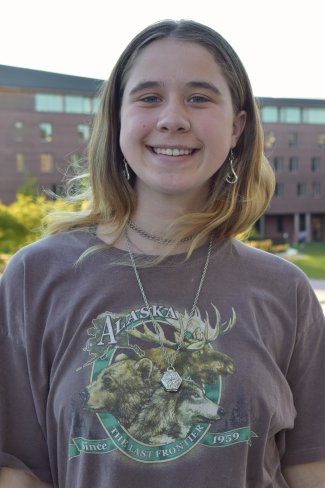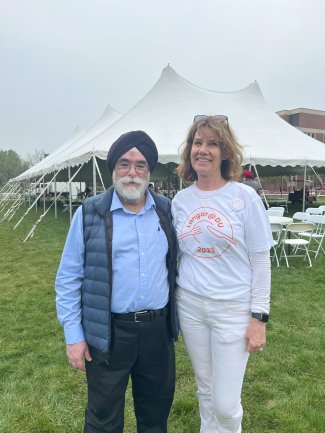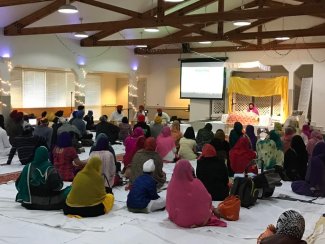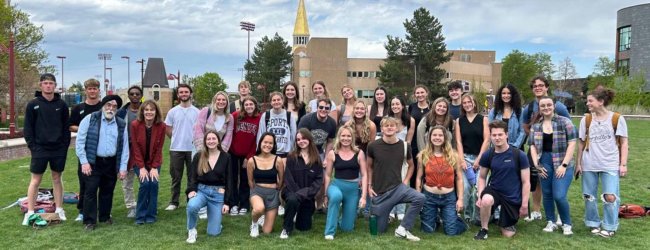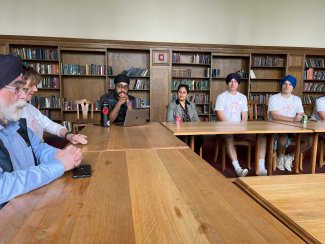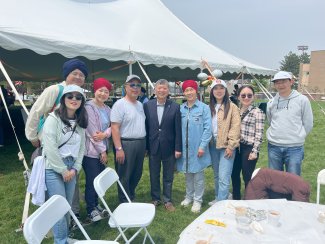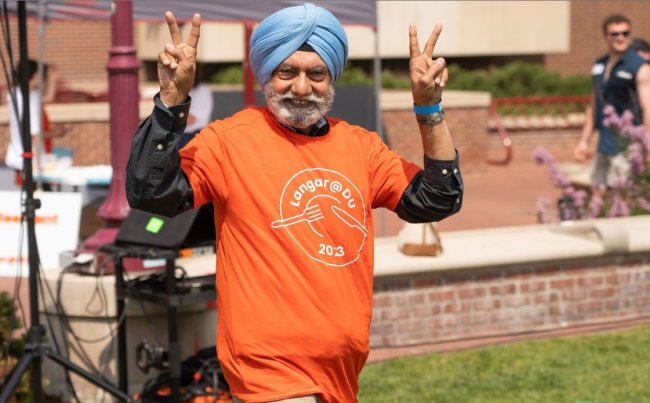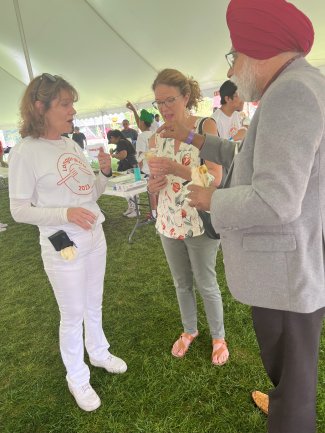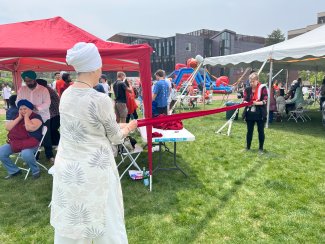My name is Anna Neumann, and I am a third-year journalism major at the University of Denver (DU). If you would have told me a year ago today that I would be a guest contributing writer for a Sikh publication, I would have been perplexed, given that I hadn’t even known one thing about Sikhism until recently. So, how did I get here?
As I battled my way through the daunting process of registering for spring classes, I came across a class called “Inclusive Community,” that piqued my interest. To be frank, I enrolled in the class because it was the only communications class that fit my schedule. Little did I know, the random fluke choice to sign up for this course would end up impacting me in more ways than I could have ever imagined.
The first class meeting was met with excitement and curiosity as Professor Marji Karish announced that we would be partnering with the Sikh community in Denver to put on the third annual Langar@DU. I have planned a fair share of events in the past and have experience with marketing and engagement. On that side of things, I was excited to add this to my resume. On the other end of things, I was a little confused about what exactly Langar was.
The first few weeks of class answered my questions about Langar and its purpose in the Sikh religion. I learned about the values of the Sikh community and why Langar encapsulated all of the things Sikhs stand for.
During week 3, we got a chance to visit the Denver Sikh Gurdwara to better understand the religion and Langar. Although I was nervous about being in a sacred space without fully knowing my purpose there, those nerves went away as soon as my bare feet stepped into the Gurdwara and I met some of the nicest, most welcoming people I’ve ever crossed paths with. Before eating, we walked through the pre-langar ceremony (I’m told this is called a ‘bhog ceremony’). As each student took their turn bowing down to the Guru Granth Sahib, I felt the energy in the room shift. The anxiety about partaking in a new experience wafted away as feelings of trust and community took its place. After some amazing music and prayer, I was served my first Langar.
For weeks after the Guardwara, I could not shut up about it. I encouraged my friends to return to the Gurdwara with me. I was so inspired by the Sikh religion and how welcomed and valued I felt in that space. I was also impressed with the food and couldn’t wait to try it again. My vegetarian friend was even more excited than I was. I told my family about the prayers that I didn’t understand, but that for some reason made sense to me. This visit is what propelled me into the planning and execution of the Langar@DU.
Sikhism advocates equality, social justice, service to humanity, and tolerance for other religions. The essential message of Sikhism is spiritual devotion and reverence of God at all times while practicing the ideals of honesty, compassion, humility and generosity in everyday life. Throughout the course, I continued to find myself looking back on these values and thinking 'how would someone of the Sikh religion handle this situation?' Although I identify as spiritual-but-not-religious, I found the values and practices of Sikhism apply to everyday occurrences in my life.
As Langar@DU started to approach quickly, keeping generosity and honesty at the forefront of my conversations with my peers, professor and community partners were essential in making this event a success.
Among many things happening in my life at the time, a major bump in the event planning was on May 9, when Pro-Palestine protesters set up an encampment, on the lawn of where Langar was supposed to take place less than a month later. I participated in this encampment as both a protestor and a journalist. As I set up camp and joined my people in advocating for Palestine, I remembered the Langar and realized the impact this demonstration would have on the location and the people in attendance of the langar.
I was nervous to attend class the next day, because I knew there would be conversations about this major change and I knew I was the only person in my class who had been camping out. As I predicted, it was the first thing we talked about when class began. I raised my hand and stated that I have been participating in the encampment, and would be happy to be the liaison between the protestors and those planning the Langar, if needed. I expected to feel eyes on me. I expected to feel judgment from all angles of the room. Instead, I was met with respect and curiosity. Students asked questions, Professor Karish reassured me and praised me for taking part in something so meaningful. The remainder of the class was spent figuring out how we could respect the protestors and their mission, while still executing a fantastic event.
A specific moment in that class that still sticks with me is when someone suggested we ask the protestors to move and I responded quickly with, “They’re not going to move for anyone until their demands are met.”
Executive Director of non-profit ‘Colorado Sikhs’ Dilpreet Jammu said in response, “There is no us or them,” instilling the sense of community and togetherness the Langar was supposed to bring to campus. He also encouraged me to invite the protesters to Langar. Once again, I was taken back to the values and beliefs of Sikhism that I learned about at the beginning of the course.
A location change from the campus green that was occupied by protestors to another nearby lawn, brought about many bumps in the planning of the Langar, such as marketing a new address and reworking the event map. I was grateful that despite the chaos, this transition was met with grace and respect for those protesting, and those who attended the event.
It's important to note that the Inclusive Community course wasn't a class on religion, or even interfaith. Professor Marji Karish, isn't Sikh herself. And by no means are the students experts on Sikhism. However, we were able to appreciate and apply its core tenets of honesty, generosity, contentment, and humility to our own lives.
Going into the class, I didn't expect to be impacted as profoundly as I was. The warm welcome we received at the Gurdwara and the respectful dialogue surrounding the protest opened my eyes to the beauty of the Sikh faith and community. But beyond that, it challenged me to truly embody the values of honesty, contentment, and humility in my daily life.
As impressed and touched as I was with the Langar@DU and how I found that Sikhs handle themselves, I had an even more personal heartening experience by reading 'The Light We Give' by Professor Simran Jeet Singh. This book particularly impacted me so much that I plan to follow up with another piece just about it.
I am grateful to Dilpreet and the SikhNet team for providing me with this platform to share my experience, and I hope that my story inspires others to approach life with an open mind, a spirit of unity, and a commitment to upholding the virtues that make the Sikh community so remarkable.


